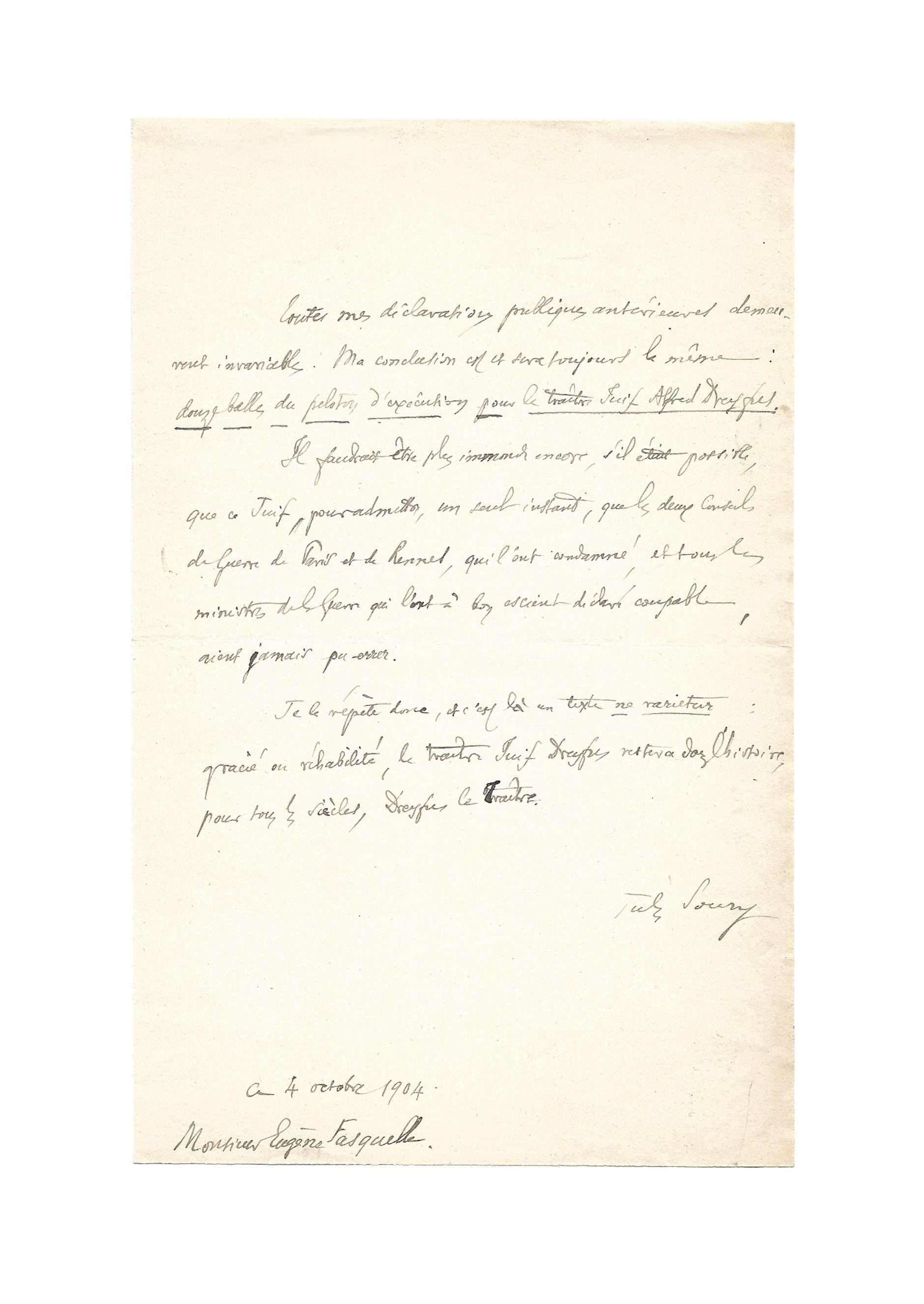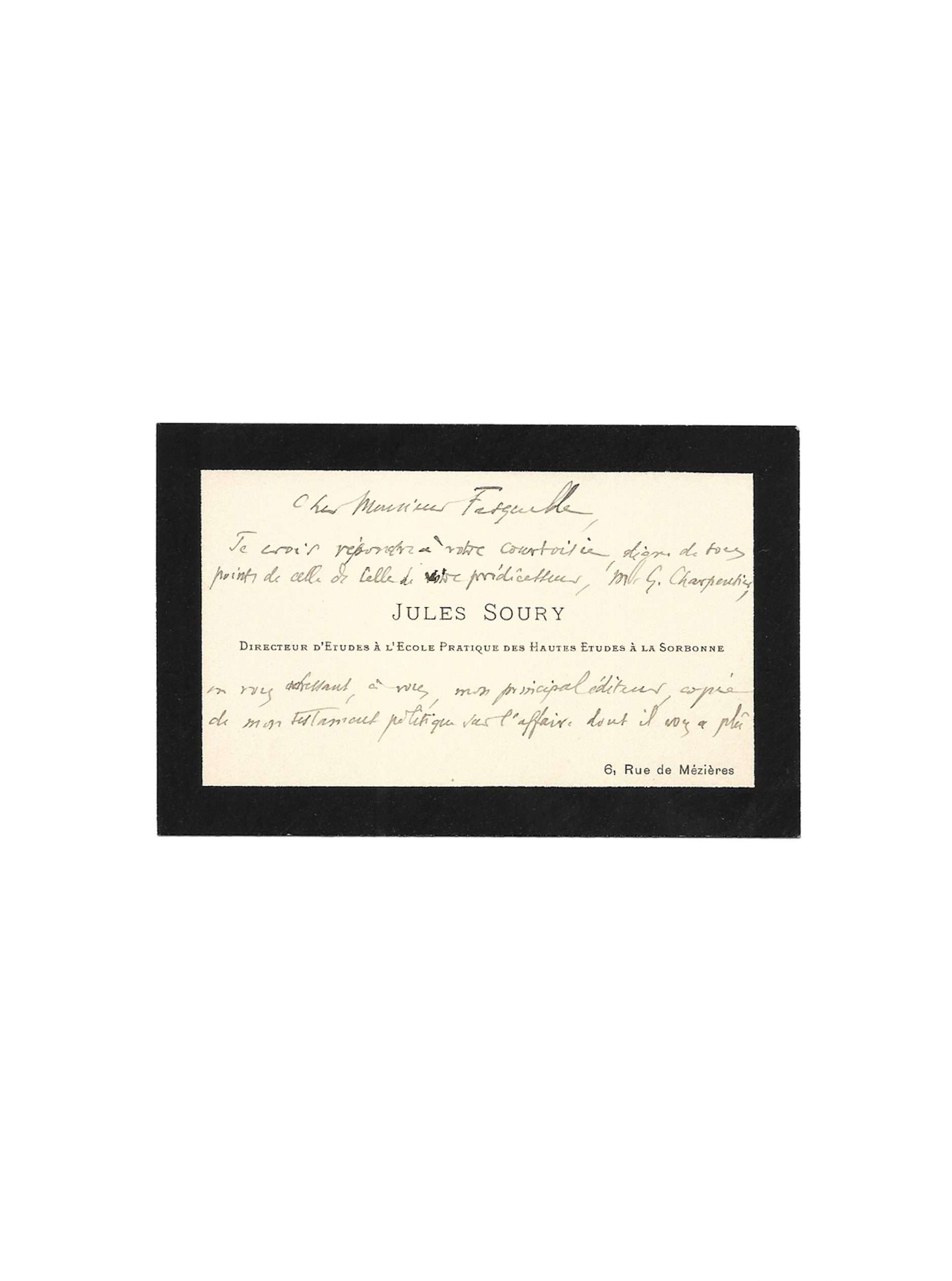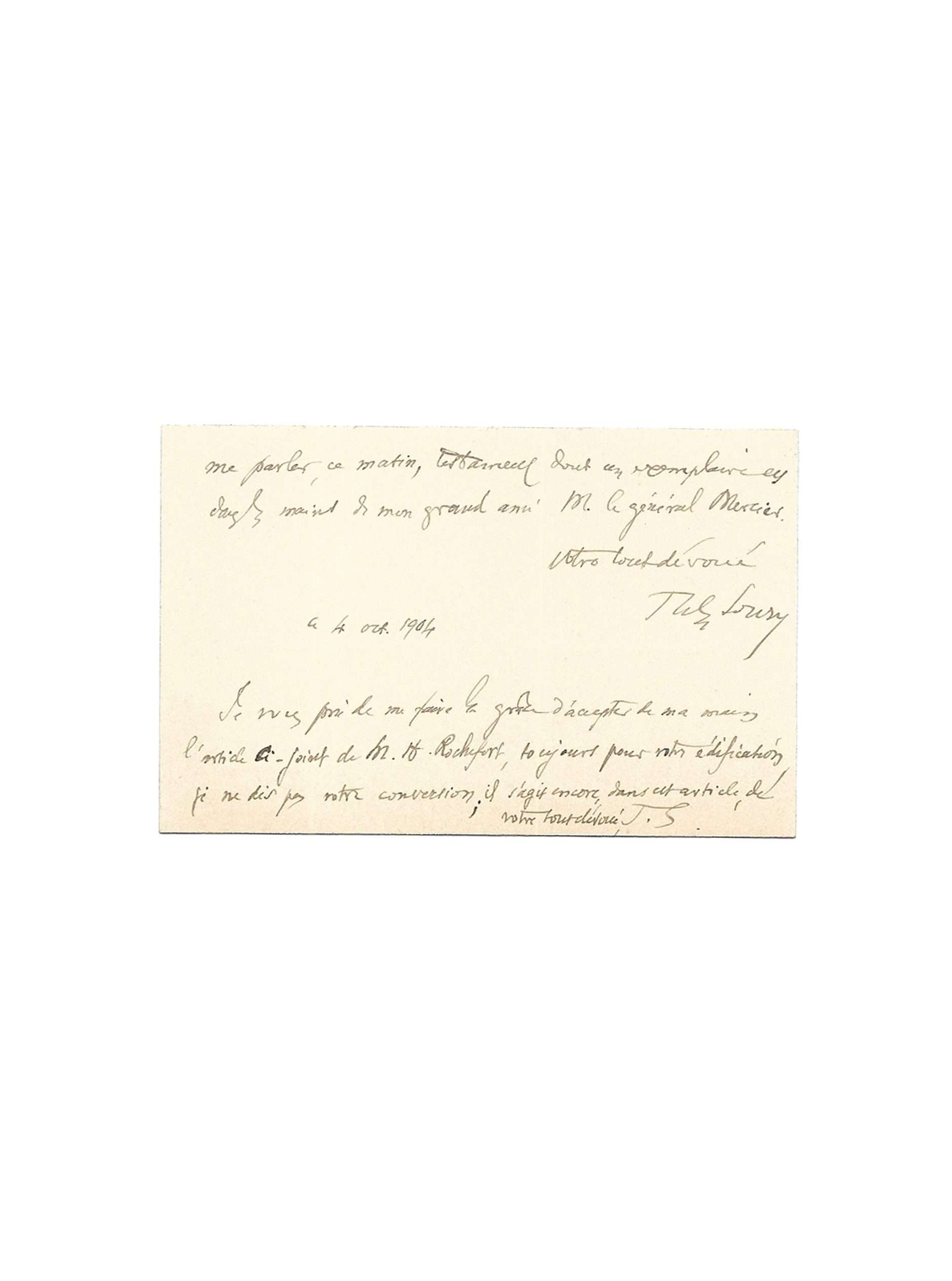[AFFAIRE DREYFUS] SOURY, Jules (1842-1915)
Autograph letter signed « Jules Soury » to Eugène Fasquelle
S.l, 4th October 1904, 1 p. in-8°
« Twelve firing squad bullets for Jewish traitor Alfred Dreyfus »
Fact sheet
[AFFAIRE DREYFUS] SOURY, Jules (1842-1915)
Autograph letter signed « Jules Soury » to Eugène Fasquelle
S.l, 4th October 1904, 1 p. in-8°
Central fold from period
Violent indictment towards Captain Dreyfus by one of the most influential theoreticians of antisemitism
« Toutes mes déclarations publiques antérieures demeurent invariables. Ma conclusion est et sera toujours la même :
douze balles de peloton d’exécution pour le traître Juif Alfred Dreyfus.
Il faudrait être plus immonde encore, s’il était possible, que ce Juif, pour admettre, un seul instant, que les deux Conseils de Guerre de Paris et de Rennes, qui l’ont condamné, et tous les ministres de la Guerre qui l’ont à bon escient déclaré coupable, aient jamais pu errer.
Je le répète, et c’est la un text ne varietur [afin qu’il n’en soit rien changé] :
gracié ou réhabilité, le traître Juif Dreyfus restera dans l’histoire, pour tous les siècles, Dreyfus le traître.
Jules Soury
Ce 4 octobre
Monsieur Eugène Fasquelle »
A theorist of the races and Antisemitism:
Jules Soury, an ardent anti-Dreyfusard alongside Léon Daudet, Charles Maurras, Édouard Drumont and Paul Déroulède, used his influence on public opinion throughout the affair. He was also close to General Mercier, one of the main architects of the plot that led to Dreyfus’s conviction. An admirer of Ernest Renan and a professor at the École pratique des hautes études from 1881 to 1898, Jules Soury gave courses there that were attended by Maurice Barrès, on whom he had a decisive influence.
Convinced that the decline of France was subject to the corrupting action of the Jews, Soury justified antisemitism, which he saw as a “struggle of the races” and not a “religious war”. His writings remain among the most violent against Captain Dreyfus. According to historian Zeev Sternhell, Soury’s words “express on the whole a vision of the world that can be described as pre-Nazi”.
Events were to take a turn from 1904 onwards following a letter from Alfred Dreyfus addressed to the Minister of Justice. Able to count on the unwavering support of his relatives, the captain asked for a review of the Rennes trial. The Court of Cassation began a procedure by carrying out a meticulous investigation until 1906. On 12 July, the Court of Cassation, all chambers combined, annulled the judgment of the Rennes War Council without referral, and affirmed that the conviction against Alfred Dreyfus had been pronounced “wrongly”, thus putting an end to the infernal judicial marathon.
Eugène Fasquelle was Zola’s second publisher, in parallel with Soury, when he directed the Charpentier and Fasquelle editions, which succeeded the Charpentier bookshop in 1896. He published La Vérité en marche (published in February 1901), bringing together the main texts of the writer’s commitment to the Dreyfus Affair.
We include:
An autographed carte-de-visite, signed twice and addressed to the same
N.p, 4th Oct. 1904,2 p. in-24°
« Cher Monsieur Fasquelle,
Je crois répondre à votre courtoisie, digne de vous, point de celle de votre prédécesseur, M. G. Charpentier, en vous adressant, à vous, mon principal éditeur, copie de mon testament politique sur l’affaire dont il vous a plu [de] me parler, ce matin, testament dont un exemplaire est dans les mains de mon grand ami M. le général Mercier.
Jules Soury
Je vous prie de me faire la grâce d’accepter de ma main l’article ci-joint de M. H. Rochefort, toujours pour votre édification je ne dis pas votre conversion ; il s’agit encore, dans cet article, de votre tout dévoué,
J.S. »
We remember that Alfred Dreyfus was to be for General Auguste Mercier the “chief criminal”. The latter, convinced that he was holding the culprit solely on the basis of an approximate handwriting expertise, decided on the captain’s guilt. He then demanded the constitution and communication, in complete illegality, of a secret file to the Council of War. As soon as Dreyfus was condemned by the same Council, he tabled a bill re-establishing the death penalty for the crime of treason.
Provenance:
Eugène Fasquelle’s estate
Unpublished letter





